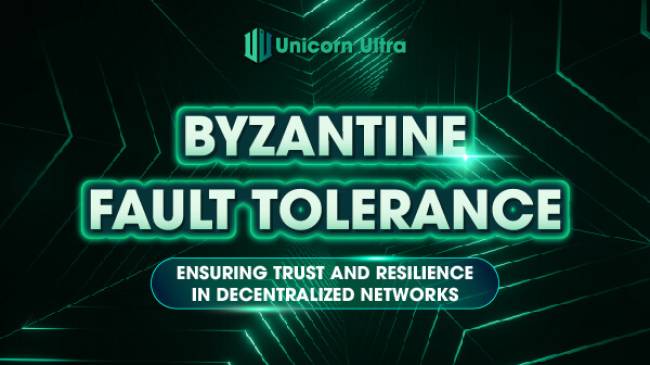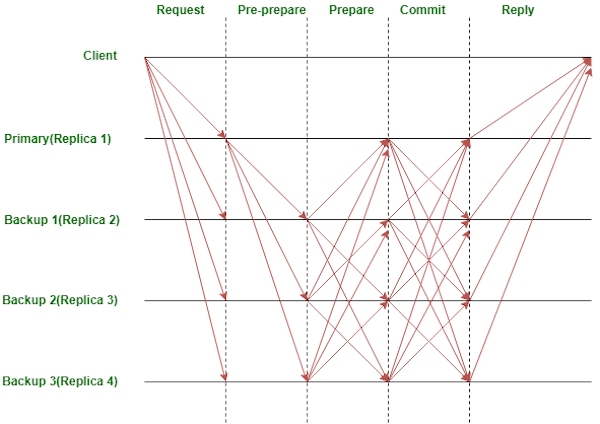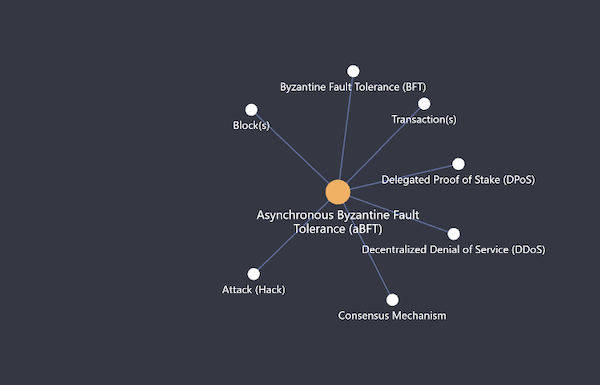In the ever-evolving world of blockchain and decentralized technologies, ensuring trust and security among network participants is of paramount importance. Byzantine Fault Tolerance (BFT) plays a crucial role in achieving this objective by enabling decentralized networks to withstand attacks from malicious actors while ensuring that honest nodes can communicate and reach consensus effectively.
Table of Contents
What is Byzantine Fault Tolerance?
A Byzantine fault refers to a condition within a computer system, especially distributed computing systems, where system components can experience failures, and there is incomplete information regarding whether a component has indeed failed.
The term originates from an allegorical scenario known as the "Byzantine generals problem," which was devised to illustrate a situation where, in order to prevent a catastrophic system failure, the system's participants must collectively agree on a coordinated strategy, even though some of these participants are unreliable.

Within a Byzantine fault scenario, a component, such as a server, can exhibit inconsistent behavior by appearing both failed and operational to failure-detection systems, displaying different symptoms to various observers. Declaring this component as failed and isolating it from the network becomes challenging for other system components because they must first reach a consensus regarding which component has failed in the first place. Byzantine fault tolerance (BFT) is the ability of a fault-tolerant computer system to withstand such conditions.
How is Byzantine Fault Tolerance (BFT) employed in decentralized networks?
In a decentralized network, consensus protocols based on Byzantine fault tolerance come into play to achieve agreement among the nodes. These protocols can be broadly categorized into two types:
Practical Byzantine Fault Tolerance (PBFT): PBFT is a classical approach to BFT that relies on a known and fixed number of validators or nodes. It establishes a three-phase process: pre-prepare, prepare, and commit. The protocol ensures that at least two-thirds of the nodes must be honest for the network to reach consensus.

Delegated Byzantine Fault Tolerance (dBFT): dBFT introduces a consensus algorithm where stakeholders delegate their voting power to a fixed number of trusted nodes called "delegates" or "validators." These validators take turns proposing and validating blocks. Consensus is reached when a supermajority of validators agree on a block.
Byzantine fault tolerance mechanisms enhance the security and resilience of decentralized networks, making them highly suitable for critical applications like finance, supply chain management, and data storage, where trust and reliability are paramount.
What does "Asynchronous" Byzantine Fault Tolerance (ABFT) mean?
Asynchronous Byzantine fault tolerance (ABFT) is a characteristic found in Byzantine fault-tolerant consensus algorithms. It enables honest nodes within a network to ensure a fair and secure agreement on the timing and sequencing of a set of transactions.

When a decentralized network achieves Byzantine fault tolerance, it signifies that the network's honest participants, or nodes, can be assured to reach an agreement on the timing and order of a specific set of transactions (referred to as consensus).
This holds true even when there are some nodes with malicious intent attempting to obstruct consensus—whether it's due to up to 1/3 of the nodes deliberately causing delays in transactions or engaging in other forms of corruption. This ability to withstand such adversarial behavior is the network's 'fault tolerance,' indicating the extent to which the network can endure nodes acting maliciously while still arriving at an honest consensus.
The 'asynchronous' attribute of Byzantine fault tolerance addresses a key challenge in fault tolerance, which is timing. Many forms of Byzantine fault tolerance presuppose the existence of a maximum threshold for message latency when reaching a consensus. An asynchronous Byzantine fault-tolerant (ABFT) network eliminates this assumption and allows for the possibility of some messages being lost or indefinitely delayed.
In an ABFT network, it is accepted that messages can be either lost or indefinitely delayed, with the only assumption being that, at some point, messages from an honest node will eventually be delivered. Assessing whether another node is not adhering to the rules becomes more complex for an honest node if that node's messages can be indefinitely delayed. However, this scenario better reflects the real-world reliability of network communication.
Conclusion
Byzantine Fault Tolerance is a critical concept in the world of decentralized networks, enabling trust, security, and consensus among nodes, even in the presence of malicious actors. Practical Byzantine Fault Tolerance (PBFT) and Delegated Byzantine Fault Tolerance (dBFT) are well-established BFT protocols for synchronous networks, while Asynchronous Byzantine Fault Tolerance (ABFT) extends this capability to asynchronous settings.
With Byzantine fault tolerance mechanisms in place, decentralized networks can gain widespread adoption in various industries, laying the foundation for a future built on trust, security, and collaboration. As blockchain technology continues to evolve, these fault-tolerant approaches will play a pivotal role in shaping a decentralized and secure digital landscape.
I hope this article has helped you understand 'What is Byzantine Fault Tolerance and Its Application in Decentralized Networks'. Thank you for being with Unicorn Ultra!






